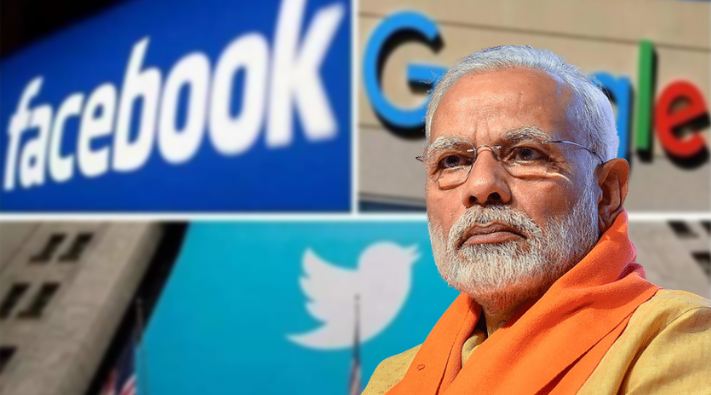It’s been a week since the Russia-Ukraine war started. While no one is batting for a war to settle an issue, the western world, especially the USA is hell-bent on isolating Russia for its gains, instead of de-escalating the situation. Reportedly, the American big tech companies, working at the behest of Democrats are playing the part of judge, jury, and executioner once again – akin to the way they unilaterally banned President Donald Trump.
The American tech companies are ideologically biased, despite claiming to stand for freedom of speech. They are censoring the free speech of ordinary Russians and making sure that their lives are upended dramatically.
Financial sanctions imposed by the West
Among the financial sanctions imposed by Western countries on Russia is the exclusion of several Russian banks from the SWIFT payment system, which facilitates smooth and rapid money transfers across nations.
Mastercard and Visa, earlier this week remarked that they had blocked several Russian financial institutions from their networks. Similarly, Google Pay and Apple pay systems have been suspended which has left the ordinary Russians in a fix as the transport cards were recharged by using the said apps.
Tech giants and their unilateral stance
Moreover, on Tuesday, Apple said it had paused all product sales in Russia and removed RT News and Sputnik from its App Store outside Russia. The company has also disabled traffic and live incidents in Apple Maps in Ukraine.
Reportedly, Google and Facebook have started censoring news articles that analyse the current situation from Kremlin’s lens. Google has also limited the Russian publications, content creators and their ability to make money from advertising on YouTube – suggesting that the censorship program was well underway.
The situation in Russia is a forewarning to India to develop its E-infra at a much more rapid pace. If in the future a potential India-China war breaks out, it would not be a surprise if the tech giants impose similar restrictions and censorship on their products in India.
India understands the need of developing E-infra
Prime Minister Narendra Modi understands the dichotomy of the situation and has been batting for ‘Make-in-India’ ever since he came to power in 2014. As a result, in the last few years, India has emerged as the undisputed global leader in digital payments.
The number of monthly digital payments in India is greater than that of the next three – China, United States, United Kingdom – combined.
Given the fact India has a very robust digital payments infrastructure, the country no longer needs foreign players like Visa, MasterCard, or American Express, which used to behave in a monopolistic manner, earlier. These card payment players not only charged hefty fees to consumers but also used to blackmail political establishments from time to time.
Read more: After MasterCard, Visa cries hoarse as PM Modi puts his weight behind RuPay
It was the National Payments Corporation of India (NPCI), a government-backed consortium of banks that, in April 2016, for the first time, introduced the revolutionary UPI (Unified Payments Interface) system.
While PhonePe became the first app to integrate the system with its payment structure in August 2016, other rivals introduced it in the year to follow.
Since then, UPI has become one of the most envious products developed by the country and its government. Such is the popularity of UPI that foreign nations like Singapore and Bhutan have already adopted the online payment system, with Nepal soon following the suit.
India can help Russia with its indigenous technology
India can provide the UPI system to Russia in the current climate. An alternative to Twitter is already present in Koo and other video streaming platforms like Chingari can be used to give an alternative to the Russian people.
Similarly, India’s RuPay can be used by Russians to sideline the arrogance of Visa and Mastercard.
India still has a long way to go to break the hegemony of Google, Facebook — the two biggest ad platforms for the marketplace in India. The situation in Russia-Ukraine should give a push to the tech minds of India to develop one. New Delhi needs to keep its bases covered.
